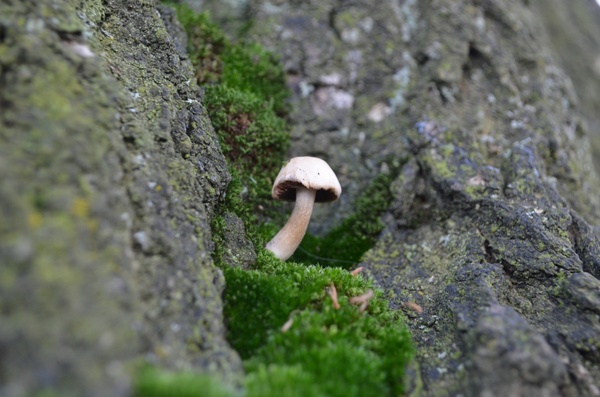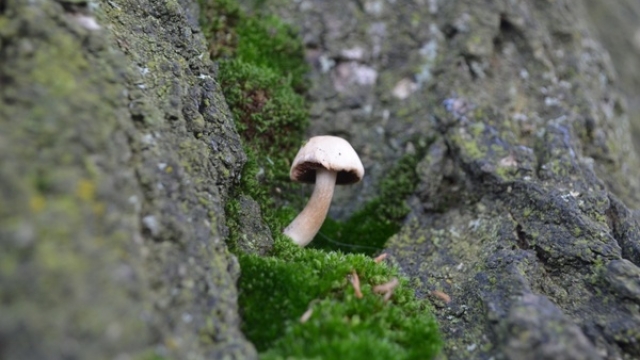
Aspiring mushroom growers may find great joy and fulfillment in the art of mushroom cultivation. Whether you’re a curious beginner looking to embark on a new hobby or a seasoned gardener searching for a captivating addition to your repertoire, mushroom growing offers a fascinating and rewarding journey into the world of fungi. With a little knowledge, patience, and the right conditions, you too can experience the pleasure of harvesting your very own delicious and nutritious mushrooms from the comfort of your home.
Mushroom growing is an ancient practice that dates back centuries, intertwining human civilizations with the incredible diversity of these remarkable organisms. From the delectable flavors of gourmet mushrooms used in culinary delicacies to the medicinal potential of certain varieties, the world of mushrooms is as diverse as it is enchanting. As you embark on your own mushroom growing adventure, prepare yourself to be captivated by the intricate nature of fungi and the wonders they can bring to your life.
In the following guide, we will delve into the essentials of successful mushroom growing. We will explore the crucial elements necessary for providing the ideal environment for mushrooms to thrive, discuss different methods of cultivation, and offer a step-by-step walkthrough of the entire process. Whether you choose to grow mushrooms in a small corner of your kitchen or dedicate an entire room to their cultivation, this guide will equip you with the knowledge and confidence needed to successfully grow your own mushrooms. So let us embark on this fungi-filled journey together and unlock the secrets to a fruitful and fulfilling mushroom growing experience.
Choosing the Right Mushroom Variety
When it comes to mushroom growing, choosing the right variety is crucial for a successful harvest. There are numerous types of mushrooms to choose from, each with its own unique characteristics and growing requirements. By selecting the ideal mushroom variety, you can ensure a fruitful and rewarding cultivation experience.
- Consider Your Growing Conditions
Before choosing a mushroom variety, it is essential to evaluate your growing conditions. Different mushrooms thrive in specific environments, such as temperature, humidity, and light levels. Some varieties prefer cooler temperatures, while others require warmer settings. Assessing these factors will help you narrow down your options and select the variety that aligns with your available growing conditions.
- Research Common Varieties
Mushroom Growing
Take the time to research the most commonly cultivated mushroom varieties. Some popular choices include the white button mushroom, shiitake, oyster mushrooms, and portobello mushrooms. Each of these varieties has its own unique taste, texture, and preferred growing parameters. Learning about their characteristics will allow you to make an informed decision based on your preferences and circumstances.
- Consider Your Culinary Needs
Another aspect to consider when choosing a mushroom variety is its culinary potential. Different mushrooms offer distinct flavors and culinary applications. For example, shiitake mushrooms are highly prized for their rich and smoky taste, making them a favorite in many Asian dishes. On the other hand, oyster mushrooms have a delicate and subtle flavor that pairs well with various cuisines. Understanding the culinary characteristics of each mushroom variety will help you select the one that best suits your taste and cooking habits.
Remember, selecting the right mushroom variety is the first step towards successful mushroom growing. By considering your growing conditions, researching common varieties, and assessing your culinary needs, you can make an informed choice and embark on a rewarding journey into the world of mushroom cultivation.
Creating the Ideal Growing Environment
To successfully grow mushrooms, it is essential to establish an ideal growing environment. The right conditions will promote healthy growth and maximize your harvest. Here are three key factors to consider:
Temperature: Maintaining the correct temperature is crucial for mushroom cultivation. Different mushroom varieties have specific temperature requirements, so it is essential to research and understand the needs of the species you intend to grow. Generally, mushrooms thrive in temperatures ranging from 55 to 75 degrees Fahrenheit (13 to 24 degrees Celsius). Maintaining a stable and consistent temperature will contribute to optimum growth.
Humidity: Adequate humidity is another critical factor in creating an ideal environment for mushroom cultivation. Mushrooms require high humidity levels to grow successfully. The ideal range falls between 70% and 90% relative humidity. To maintain these levels, you can utilize a humidifier or mist the growing area regularly. Be cautious not to oversaturate the growing medium, as excess moisture can lead to issues such as mold growth.
Lighting: Unlike plants, mushrooms do not rely on photosynthesis for energy. However, they do require some form of light to stimulate the growth process. Indirect natural light or low-intensity artificial light sources, such as fluorescent lamps, are suitable for most mushroom varieties. It is crucial to strike a balance and avoid exposing the mushrooms to direct sunlight or excessive light, as this can negatively impact their growth.
Creating the ideal growing environment for mushrooms involves careful consideration of temperature, humidity, and lighting. By paying close attention to these factors, you can provide the optimal conditions to ensure a successful mushroom harvest.
Caring for Your Mushroom Crop
Maintaining Optimal Conditions
To ensure successful mushroom growing, it is crucial to maintain optimal conditions within your crop. Firstly, controlling the temperature is essential. Most mushroom varieties thrive in temperatures between 55-65°F (13-18°C). It is important to monitor and regulate the temperature consistently throughout the growing process.
Humidity is another crucial factor. Mushrooms require a humid environment, typically around 85-95% humidity. To achieve this, mist the growing area regularly with water and use a humidity meter to ensure the levels remain within the desired range. This will enhance the growth and development of your mushroom crop.
Providing Adequate Lighting
While mushrooms do not require direct sunlight for growth, they do need some light exposure. Indirect natural light or artificial light sources, such as fluorescent bulbs, are ideal. Ensure the light source is placed at a reasonable distance from the crop to prevent overheating. Providing 12-14 hours of light per day will promote healthy mushroom growth.
Harvesting at the Right Time
Knowing when to harvest your mushrooms is essential to maximize their flavor and nutritional value. The ideal time to pick them is when the caps have fully expanded but have not yet started to flatten. This is typically around 1-2 days after the veil underneath the cap breaks.
To harvest, gently twist or cut the mushrooms close to the substrate surface. Avoid pulling them forcefully, as this can damage the mycelium and impact future yields. Always handle the mushrooms carefully to prevent bruising or contamination.
By adhering to these guidelines and giving proper care to your mushroom crop, you can ensure a successful and bountiful harvest.
